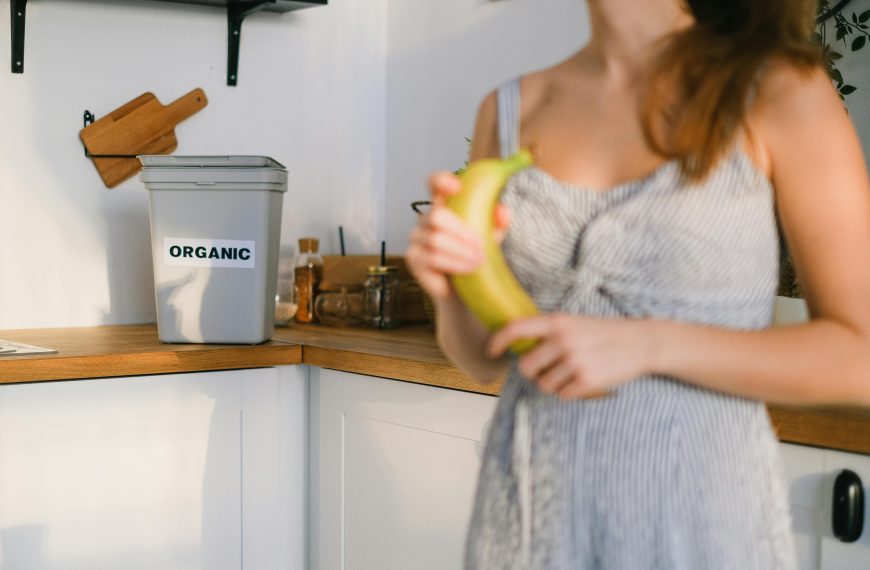In today’s world filled with worries, the idea of zero waste living offers a glimmer of optimism. It involves making choices to minimize the waste we produce, thus lessening our impact on the environment. While transitioning to a zero waste lifestyle may seem overwhelming initially, it is entirely possible with dedication and small adjustments. Below, we explore suggestions for embracing this friendly way of living and cutting down on household waste.
Embrace the 5 Rs
Zero waste living centers around the principles of Refuse, Reduce, Reuse, Recycle, and Rot. Begin by saying no to single-use plastics and excessive packaging. Cut down on consumption by purchasing only what you truly need. Opt for reusable items whenever possible instead of disposable ones. Recycle materials like glass, paper, and metal, but remember that recycling should be a last resort option. Lastly, compost waste to nourish the soil and complete the cycle.
Assess Your Garbage
Take stock of your trash through a waste audit to identify commonly discarded items. This examination will enable you to identify areas where improvements can be made and customize your zero waste endeavors accordingly. Remember to keep an eye on things that can be replaced with alternatives or removed altogether.
Go for Reusable Items
Trade in products for alternatives. Switch out single-use plastic bags for cloth or mesh produce bags, opt for steel or glass containers for storing food, and choose reusable water bottles and coffee cups. These changes not only cut down on waste but also help save money in the long term.
Shop Thoughtfully
Give priority to package-free bulk shopping whenever you can. Bring your containers to refill pantry essentials like grains, nuts, and spices. Look for products with recyclable packaging and support brands that are dedicated to sustainability. Farmers markets and local co-ops are great places to find package-free produce and other necessities.
Meal Planning and Food Preservation
Plan your meals wisely to reduce food waste and only purchase what you actually need. Use leftover ingredients creatively to avoid throwing them away. Embrace food preservation methods such as freezing, pickling, and canning to prolong the shelf life of items. By composting kitchen scraps, you can ensure that any unavoidable food waste goes back into the soil.
DIY Projects and Upcycling
Let your creativity shine through DIY projects and repurpose items before getting rid of them. Repurpose glass jars as storage containers or candle holders, give clothing new life as reusable rags or tote bags, and refurbish furniture instead of purchasing new items. The options are limitless with a touch of creativity and resourcefulness.
Opt for Eco-Friendly Choices
Make eco-conscious choices in every aspect of your life, from personal care products to cleaning supplies. Seek out non-toxic alternatives that come in recyclable or compostable packaging. Consider creating your cleaning solutions using ingredients like vinegar, baking soda, and essential oils.
Embrace a Minimalist Lifestyle
Embracing minimalism can significantly help reduce household waste. Declutter your living space and prioritize quality over quantity when buying things. By simplifying your life and focusing on what matters, you’ll naturally generate less waste and use fewer resources.
Spread Awareness and Encourage Action
Share your zero waste journey with others to motivate them to join the cause. Educate your family about the significance of waste reduction and provide practical advice for getting started. Advocate for policy changes and support initiatives that aim to decrease pollution and promote sustainability on a larger scale.
Acknowledge Progress Over Perfection
Moving towards a zero waste lifestyle is a process rather than an end goal. Let’s take a moment to appreciate the progress we’ve made and the little victories we achieve, while not letting setbacks or moments of imperfection discourage us. Each positive change we implement contributes to a healthier environment and a brighter future for generations to come.
Adopting a zero waste lifestyle is a way to lessen our footprint and support sustainability in our everyday routines. By following advice such as avoiding single-use plastics, opting for reusable items, and being mindful when shopping, we all have a role to play in building a more sustainable world. Remember, every small effort matters, and together we can make a significant impact on preserving our planet for generations to come.









